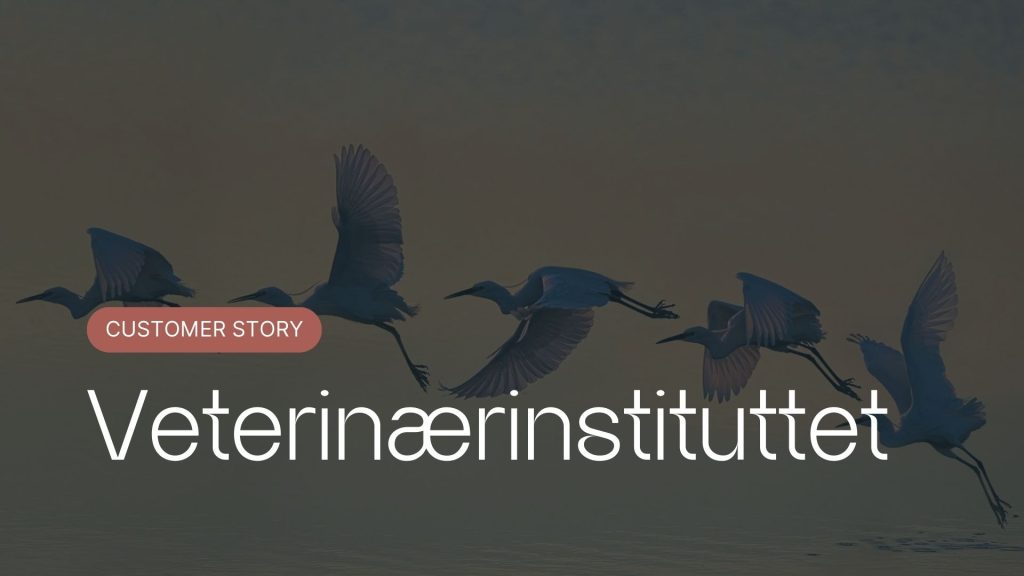
To celebrate World Environment Day, we would like to take you on a short visit to our bees, who live on the balcony of our Stavanger office.
Our most important colleagues
PlanBi, the provider of our beehive was established in late 2021, after 4 strangers met at a beekeeper-course and made their passion into a business. Armin Meier, a former colleague in Arribatec is one of the owners. Today they facilitate between 70-80 beehives in the Stavanger region, both at their own apiaries and on their client’s rooftops.
When a post suddenly appeared on our LinkedIn feeds half a year ago, saying that one of our former colleagues had started his own beekeeping business, it wasn’t really a question whether we wanted to join in and support him.

For most people bees might only be a small fluffy thing buzzing around our yard during summer, but they are crucial in maintaining our planet by pollinating our food and the trees and flowers that provide habitats for wildlife.
Silje Adolfsen was lucky enough to join Armin when he came to check on our bees on Friday.
“No one can do everything, but everyone can do a little. It is important for us as a company to contribute to the environment, and we see this as one of the contributions we can make to make the world a little better”.
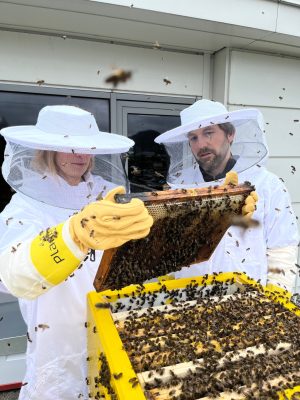
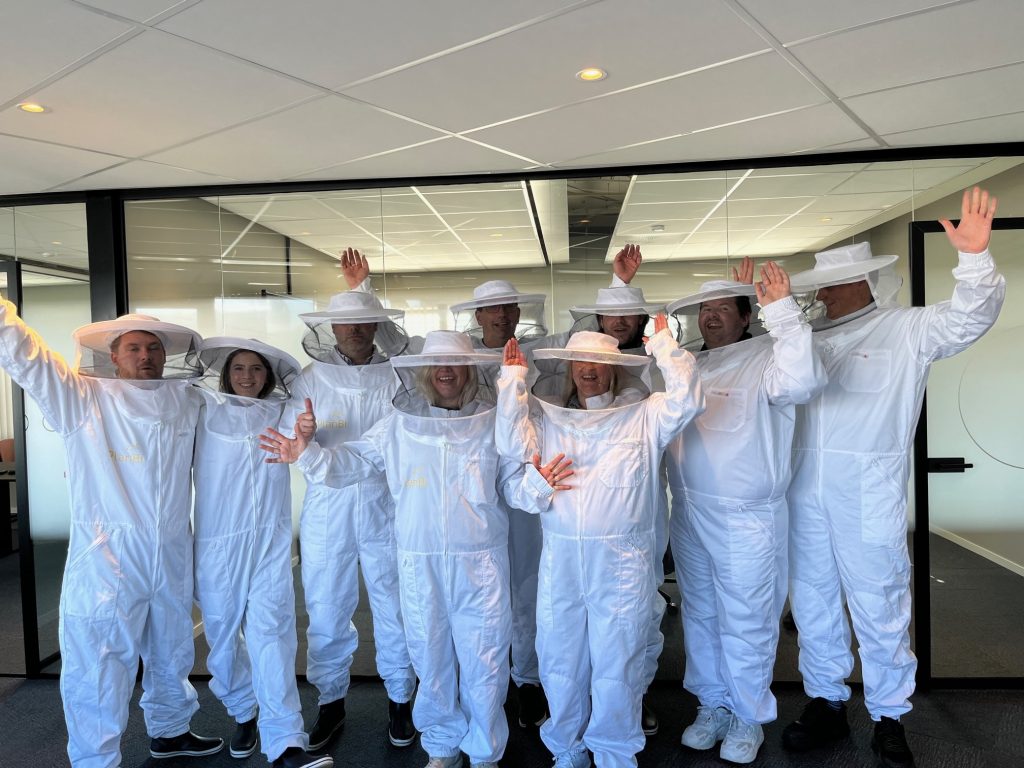
The EU Commission has estimated that approximately 87,5% of all plant species in Europe is dependent on pollination by insects, and as much as one third of the food we eat is directly or indirectly dependent on pollination. The bees’ work has been estimated to be worth NOK 1,300 billion – every year. It is safe to say that if this job was to be done manually by humans it would be extremely expensive and of course demand a gigantic workforce.
“Besides oil and gas, Rogaland is known for their fertile soil, and their large and elongated lands, ideal for agriculture. In contrast to most of Norway Rogaland is very flat, making our land uniquely fit for crops. As these crops are dependent on the endangered bee we must do what we can to save them” Silje continues.
How can YOU help?
- If you have a garden, leave some debris where bumblebees and wild bees can live
- Build insect hotels and provide shelter for bees
- Fill your garden with bee-friendly flowers which bloom throughout the summer.
- Stop using pesticides in your garden
- Pay attention to the nature around you.
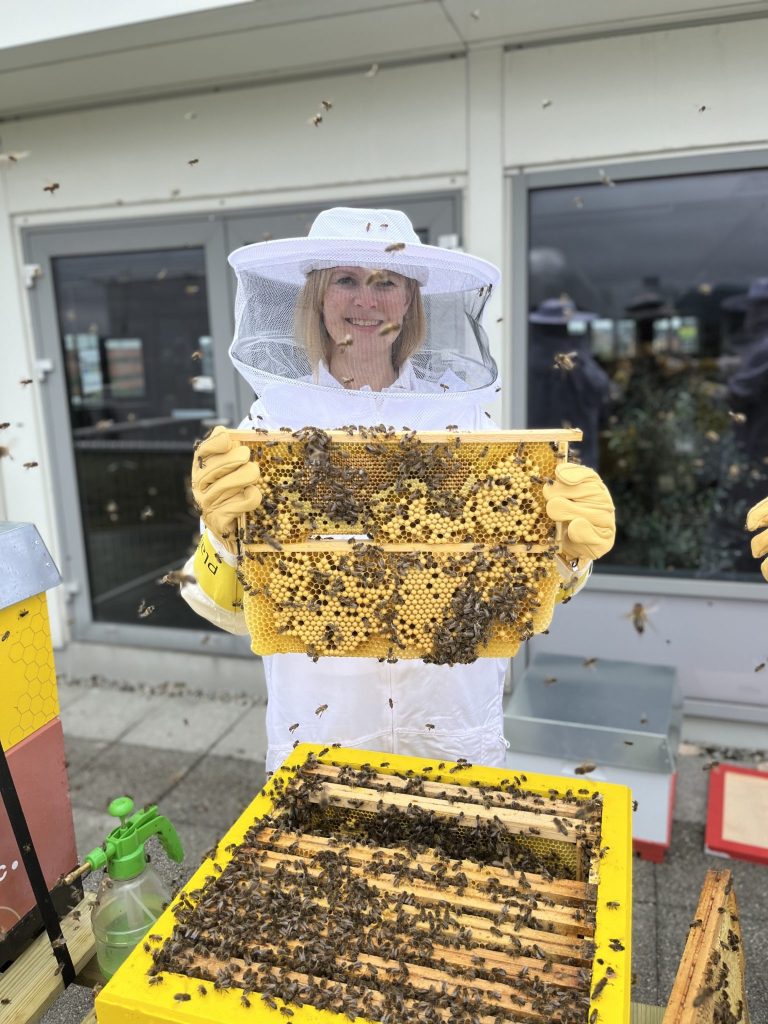
PlanBi’s mission is to make the city viable for pollinators. There is less and less space for pollinators to settle or find food, which is why bee’s decrease in number. In Rogaland there is a small gap between town and farmer, and little area that is not built on or filled with monoculture. PlanBi therefore want to focus on areas that can be changed into food trays for pollinators.
We are proud of our 50-60.000 furry colleagues buzzing around on our balcony and the work they do for our local community, they might have the most important job of us all.
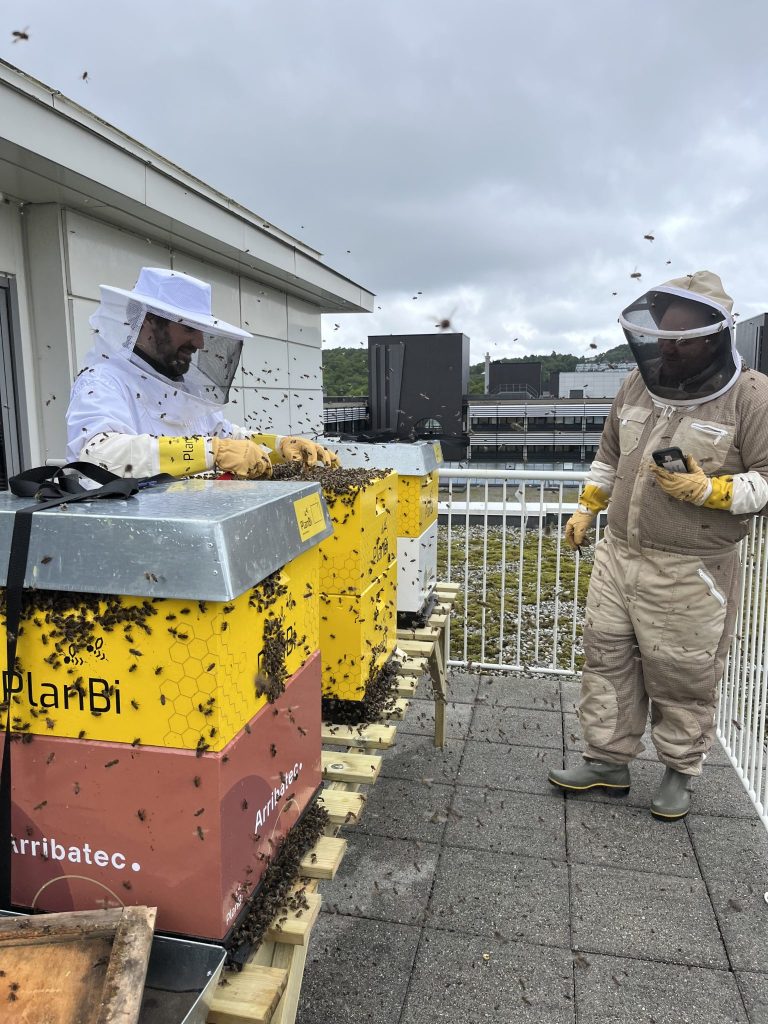

Buzzing facts
- 1/3 of the food we eat depends on pollination. Bees are a climate-neutral input factor in agriculture, on an equal footing with sun and water. The bees’ pollination means that fruit, berries and vegetables get better quality.
- A beehive like ours consists of 50-60,000 bees during summer. A society consists of a queen, drones (male bees) and working bees. The queen is the mother of all the bees in the cube.
- 99% of the bees in the cube are female. They have different roles such as worker bees, care bees, guard bees and migratory bees. The male bees have one function, and that is to mate.
- A strong beehive can produce between 25-40 kg of honey each season, if the conditions are right for it. A bee collects 1 teaspoon of honey during its lifetime.
- Bees are looking for flowers and are not interested in us. Let them work in peace and you will enjoy their abundance in the form of pollination, food and honey. If you get a visit at your dining table, it is probably the wasp that is hungry.

